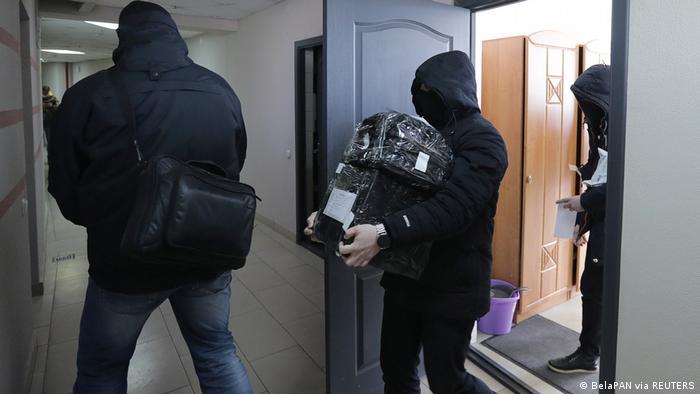Moscow: Russian authorities Tuesday morning raided the apartments of several investigative journalists and their family members. This development comes amid mounting pressure on Russia’s independent media outlets. Police searched the apartments of Roman Badanin, chief editor of the ‘Proekt’ investigative online outlet, and Maria Zholobova, one of its journalists.
Officers also raided the home of the parents of Badanin’s deputy, Mikhail Rubin. The latter was detained near Zholobova’s residential building and brought to his parents’ apartment.
‘Proekt’ said in its account in the Telegram messaging app that the raids occurred after the outlet promised to release an investigation into Russia’s interior minister, Vladimir Kolokoltsev, and his alleged wealth. The outlet published the story shortly after the searches started.
Also read: Putin critic Navalny could die at any moment: Doctor
‘Proekt’ later said that at least two out of three raids were connected to a defamation case over a 2017 documentary Badanin and Zholobova worked on. It is about a St Petersburg businessman with alleged ties to organised crime. It was unclear, however, why Badanin’s deputy, Rubin, was targeted by the police.
Russian authorities have turned up the pressure on independent news media in recent months. Two popular independent outlets, ‘Meduza’ and ‘VTimes’, have been designated ‘foreign agents’. It is a label slapped on groups, news outlets or individuals that receive foreign funding. The designation implies additional government scrutiny and has a strong pejorative connotation that could discredit those that receive it.
‘VTimes’ shut down this month after being added to the list of ‘foreign agents’, while Meduza launched a crowd-funding campaign.
Russia has used the law to levy heavy fines on US-funded ‘Radio Free Europe/Radio Liberty’ for failing to identify its material as produced by ‘foreign agents’. The broadcaster has asked the European Court of Human Rights to intercede.
